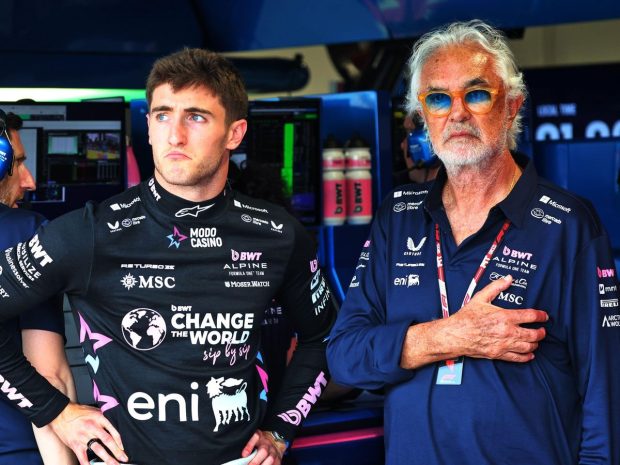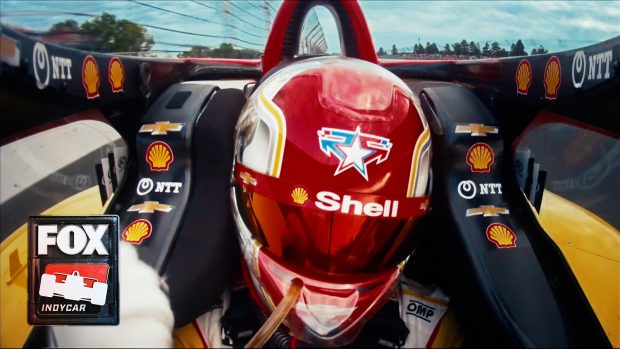
Everton have played at Goodison Park since 1892, but now have one Premier League game left at their famous old home.
A move to the new stadium on Liverpool’s waterfront will follow. So, to mark the final few weeks, The Athletic has produced a series of articles and there is a special podcast to come.
This is the latest and is an attempt to pick ten memorable goals from a lengthy list.
It’s often hard to define exactly what makes a goal great.
Is it a venomous shot from range, arrowing into the top corner, or a considered 30-pass move to open up the opposition? Maybe it’s more than that. A moment in time; something which resonates and is replayed for decades to come.
Whichever it is — and for this writer, it is often in the eye of the beholder — Goodison has witnessed many such moments.
Advertisement
As it gets set for its final Premier League game on Sunday, The Athletic decided to take a trip down memory lane and compile our own list of Everton’s greatest goals.
Some words of warning before we start. There will be an element of recency bias, based on my age and the games I’ve watched, and the goals will appear in chronological order. Picking a favourite is near-impossible.
I’ve also largely foregrounded key incidents in Everton and Goodison’s journey over the finishes or moves themselves. So as perfect as James McFadden’s late flick and volley against Charlton Athletic was, that misses the cut.
Let us know in the comments which ones you’d have picked… we don’t doubt you will.
Andy King, Everton 1-0 Liverpool, October 28, 1978
The story goes that Liverpool’s Graeme Souness thought King had failed to properly connect with his 58th-minute Merseyside derby winner.
“As I’d hit it, he said, ‘You’ve missed’. I turned to him as it went into the top corner and said, ‘I did, I was aiming two inches to the left’,” King later said.
In reality, the midfielder’s goal was close to perfection. Racing onto a loose ball on the edge of the box, King allowed one bounce before sending his firm half-volley high into the net.
“Everton have taken the lead with a typical King goal and Goodison has gone mad,” commentator John Motson bellowed.
🗣 ‘Andy is our King!’
The great man would have been 64 today. He’ll never be forgotten at Goodison Park. 💙 #EFC pic.twitter.com/5N51ebZGwT
— Everton (@Everton) August 14, 2020
It earned Everton their first win over Liverpool in seven years and was celebrated accordingly.
Fans flocked onto the pitch at full time, with King manhandled and told to “get off the pitch” by a police officer as he was conducting a post-match interview.
The goal was a beacon of hope for a club that had endured a difficult decade after the success of the 1960s. A popular figure, the midfielder earned a place in Everton folklore that day, as “Andy is our king” became a regular chant on the terraces.
Andy Gray, Everton 4-1 Sunderland, April 6, 1985
A standout win in a landmark season. Howard Kendall’s side finished 13 points clear of Liverpool to lift the First Division title and won the European Cup Winners’ Cup in Rotterdam.
In a campaign littered with memorable moments, the demolition of Sunderland remains one of the highlights. It was telling that Everton, during the Covid-19 pandemic, chose to broadcast it in full on YouTube as a ‘live watchback’.
Advertisement
Kendall’s team was full of grit and fight, but they could play. Gray’s goal was a case in point.
Pivoting on the touchline, Paul Bracewell sent a lofted pass down the right for fellow central midfielder Peter Reid to chase. Reid cut inside and sent a low cross towards Gray, who powered a diving header into the Gwladys Street net.
Everton fans have always loved centre forwards who can dominate in the air, and Gray was no different — his 1983 arrival from Wolverhampton Wanderers was an unlikely catalyst for the success that followed.
Trevor Steven, Everton 3-1 Bayern Munich, April 24, 1985
“It was a fever-pitch day and I’d never experienced a game like that — so much depended on it,” Steven tells The Athletic 40 years on from arguably the most storied night in Everton’s history.
“It’s always been an amazing stadium. It came to its peak on that night”.
After a 0-0 draw in Germany, Everton were trailing to Dieter Hoeness’ goal. Then came manager Kendall’s famous half-time dressing room speech. “Get the ball into the box and the Gwladys Street end will suck it into the net,” he told his players.
Goals from strikers Graeme Sharp and Gray saw Everton leading on aggregate going into the final 10 minutes. Then, with the clock ticking, winger Kevin Sheedy picked up the ball deep in his half.
“It was a particularly brilliant goal in the context of where we were,” Steven says. “We had all sorts of different styles of player within our team, so we were never short on a variety of ways of scoring.
“The goal comes at the right time, from Paul Bracewell winning the ball to Sheeds orchestrating everything with his wand of a left foot. Andy (Gray) would normally come to get the ball to feet, but what allowed him to make this run was Sheeds just holding on to the ball. Sheeds knew where the space was, and when he wasn’t giving the ball to Andy’s feet, Andy clocked it and went off on the run.
Advertisement
“It was perfectly timed, and I was just watching it unfold. I went charging down towards Andy and then realised that their defenders had been pulled in by him. I followed Andy’s run for the first seven or eight steps and then realised where the space was. He had clocked it and me in the corner of his eye.
“He played the ball perfectly into space. There were a million things going through my head. The circumstances, the crowd and the noise was deafening. I just focused on the first touch to take it away from the defender, which served two purposes as it drew the goalkeeper out. I saw him going to his left so the obvious place was to lift it to the right of him. I hit it cleanly and smoothly, probably effortlessly in the end, but it wasn’t (effortless) in my head.”
For Steven, it was the standout moment in a decorated career.
“I’d loved scoring my first goal for England, because that’s something you dream about,” he says. “I’d scored a Championship-winning goal in Scotland but it doesn’t even come close. In context of my career, that was the moment.”
Barry Horne, Everton 3-2 Wimbledon, May 7, 1994
Wales midfielder Horne was not renowned for his goalscoring. Across four years and over 150 appearances at Everton, he scored three times. Yet his strike against Wimbledon, on the final day of the 1993-94 season as the side battled relegation, stands out as by far the most important.
The day is a montage of images. The “very, very calm” conditions — “clear blue sky, no wind”; supporters “in the trees and on top of the church”.
For a while, it looked like Everton’s race was run. 2-0 down after 20 minutes to two “extraordinarily ridiculous” goals, as Horne puts it, Mike Walker’s side seemed on course for a first relegation in 43 years.
Horne, however, remembers “always thinking we were going to win” — “when the (first) goal (scored by Graham Stuart) came it was like, ‘Right, that’s it, we’re going to finish the job off now’. The noise was incredible. The Wimbledon players were rocked by the noise.”
Everton were level at the break but the momentum was with them when the ball dropped to Horne in the 67th minute. He steadied himself and crashed his long-range shot into the top corner of the Gwladys Street net.
“Anyone who’s played sport will understand,” he tells The Athletic. “If you’re not confident, you don’t do things like that. At this point in the season and in the game, I was playing well after a poor start at Everton
“I was fully aware of the magnitude of it. It wouldn’t have bothered me if it was a six-yard tap-in or that one. The effect on that game was the same.
Advertisement
“But the fact that it was such a ridiculous goal — I say ridiculous because I only scored three for Everton in my four years — the effect it had on the crowd and on Wimbledon meant it was more than just a goal.
“It’s my favourite goal. I scored a few long-range ones, but it’s the most important given the effect it had on that game and what it meant.
“Now we’re leaving Goodison and people are starting to put books and videos together. You realise it’s been 133 years (there) and when people talk about events, that’s usually one of them. It means I’m part of Everton’s history and that’s brilliant.”
Wayne Rooney, Everton 2-1 Arsenal, October 19, 2002
“Remember the name, Wayne Rooney!”
Clive Tyldesley’s famous commentary marked the emergence of a future star onto the global stage.
When Rooney struck in the last minute to end Arsenal’s 30-game unbeaten run, Tyldesley had the words of an Everton fan ringing in his ears. “He came up to me at the wrong end of a sportsman’s dinner, when we’d both had a glass or two and he whispered in my ear (about Rooney),” he later explained.
The commentary was perfect. “Gravesen forward. Rooney. Instant control. Fancies his chances… Oh, a brilliant goal! Brilliant goal! Remember the name: Wayne Rooney!”
⏪ | #OnThisDay in 2002… 💥😱🙌@WayneRooney introduced himself to the world 15 years ago.
On Sunday, it’s #EFC v @Arsenal all over again… pic.twitter.com/QvHzdqyBlG
— Everton (@Everton) October 19, 2017
Much to his annoyance, Rooney had started the game on the bench. A lifelong Everton fan and academy graduate, he wanted to score his first Premier League goal before his 17th birthday five days later.
Even at that stage, many at Everton saw him as the best player at the club. Academy manager Ray Hall was one of those who later spoke about expecting the net to bulge when Rooney set himself. Given his local ties, it was a moment that meant so much to so many.
Advertisement
“There’s probably only two or three occasions where it was rapturous down the whole street,” his then manager David Moyes said in the book Faith Of Our Families. “That was one of them.
“He was one of their own — probably half of the supporters might have known Wayne from playing in the streets with him, or bumping into him, or going to school with him.”
Leon Osman, Everton 3-1 Larissa, 25 October, 2007
You’d be hard pushed to find a better team goal.
Leighton Baines started off a flowing move by finding Tim Cahill deep in Everton’s half. Cahill returned the favour, releasing an overlapping Baines down the left. Then, from a low pass inside, Steven Pienaar flicked the ball first-time to the onrushing Osman who bent a swerving shot with his instep into the Gwladys Street net.
“I’d probably say it was the best goal I’ve scored for everything that was involved in it,” Osman told The Athletic in 2020.
“It was surprise from all the team when they saw it was me. I wasn’t renowned for shooting from distance. So when I did score from 20 or 25, yards it was one to talk about for weeks in the dressing room.
“My three favourite goals are the Larissa one, a goal against Portsmouth and one on my 400th appearance against West Ham when Samuel Eto’o whipped a ball across the face of goal after a break. The Larissa one was the best.”
🎂 | Happy 38th Birthday, @Osman21Leon! 💙
4️⃣3️⃣3️⃣ #EFC appearances
5️⃣8️⃣ Goals
😱 Capable of this… pic.twitter.com/quuehHYx1z— Everton (@Everton) May 17, 2019
Nobody who was there that night, or has seen replays since, would disagree.
Mikel Arteta, Everton 2-0 Fiorentina, March 12, 2008
A night that promised so much for Everton, but one that ended in heartbreak.
Trailing 2-0 from the first leg of their UEFA Cup tie, Moyes’ side dominated Fiorentina.
Andy Johnson bundled in Pienaar’s early cross to halve the deficit, before Arteta drove forward and unleashed a firm low effort into the bottom corner of the Gwladys Street net to bring Everton level.
⚡️ | The noise when @m8arteta struck #onthisday in 2008! 💥
Let’s get Goodison rocking again next weekend! 💪 pic.twitter.com/OV6DI9l0AE
— Everton (@Everton) March 12, 2019
The atmosphere was raucous but Moyes’ side were thwarted by an inspired Fiorentina goalkeeper Sebastien Frey and lost 4-2 on penalties. One of several nearly moments as the club have sought to end their trophy drought. But the noise that greeted Arteta’s strike will live long in the memory nevertheless.
Dominic Calvert-Lewin — Everton 3-2 Crystal Palace, May 19, 2022
The first thing you hear, watching the goal back, is the chant of ‘Spirit of the Blues’ as winger Demarai Gray prepares to deliver his free kick towards the area.
Only an hour earlier, they had appeared dead and buried. Trailing 2-0 at half-time against Palace in their penultimate game of the season, and with a trip Arsenal to come, Frank Lampard’s side seemed destined for the Championship.
Advertisement
Then came salvation. Gray’s delivery was precise; Calvert-Lewin’s diving header in keeping with the proud tradition of aerially adept No 9s.
From there, it was bedlam. Fans surged onto the pitch. Substitutes, staff and players race to celebrate with Calvert-Lewin. Richarlison fell to the ground in exhaustion.
The Gwladys Street effect™️@CalvertLewin14 🦋 pic.twitter.com/aPYdwTSySs
— Everton (@Everton) May 19, 2022
At full time, with Everton’s Premier League status secured, Lampard danced on top of the directors’ box with jubilant supporters. A night for the ages.
Abdoulaye Doucoure, Everton 1-0 Bournemouth, May 28, 2023
A year later, Everton were staring down the barrel again. With Leicester City winning, only three points in the season finale with Bournemouth would do. Somehow, some way, they had to score.
Cue Doucoure, 57 minutes in. Pouncing on Matias Vina’s headed clearance, the midfielder rifled a first-time effort from the edge of the box past Mark Travers.
The Mali international was an unlikely hero. Before Sean Dyche replaced Lampard as manager that January, he had been primed for the exit door.
“There was a lot of emotion (after the goal),” Doucoure later told The Athletic. “Everything came through. The season. I also lost my Dad, so it was very tough.
“I forget what I was shouting (after I scored). I spoke with Amadou (Onana) and he said, ‘I knew you were going to score’ because, even at half-time, he was saying that. I knew in my head, I’d have one chance and needed to take it.”
“WHAT A HIT! WHAT A GOAL!” 🚀@abdoudoucoure16 with the moment that mattered. 💙 pic.twitter.com/C8ekxY4fil
— Everton (@Everton) May 28, 2023
Everton fans will forever be grateful he did.
James Tarkowski, Everton 2-2 Liverpool, February 12, 2025
“It was mayhem all game — an old-fashioned throwback,” Everton manager Moyes said after Goodison’s final derby this season.
“The place was boiling hot all night.”
No more so than in the 98th minute of the match, when central defender Tarkowski thundered a volley into the net to earn his side a point.
The sense of relief was palpable. Losing to their fierce rivals in Goodison’s derby farewell would have almost been too much to stomach.
Even after Tarkowski’s strike, there was an anxious wait. Due to a VAR check, it was not until the 100th minute that the goal officially stood. Then Goodison celebrated once more.
“It was mental,” Tarkowski told reporters. “I had an 80-year-old grabbing me and then a five-year-old kid pulling me to the floor. There were stewards everywhere. It was chaos but it shows what a moment it is.
“I’ve had a couple of promotions and played for my country but with everything that’s happening right now, leaving this iconic stadium — a special stadium — it will be the biggest one of my career.”
(Top images of Dominic Calvert-Lewin and Andy Gray: Getty Images)
This news was originally published on this post .







Be the first to leave a comment